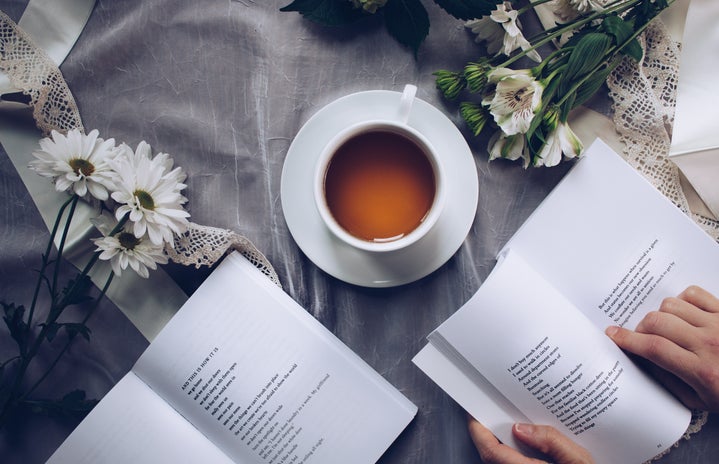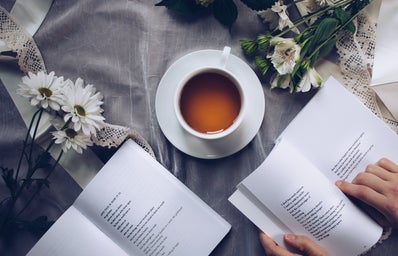Although the Apartheid against Palestinians has persisted for more than 70 years, it is only in the last 6 months that a global discourse about it has started, including media and news coverage. Despite this, Palestinians remain subjected to Israel’s brutal ethnic cleansing, and their fight for freedom and the right to live in their homeland unoccupied continues to feel like a distant dream.
Literature has often served as a vessel for those enduring hardship to convey their experiences to the world, offering a voice to their people. In an attempt to diversify my reading, I recognised that supporting Palestinian writers is not only a means to understand their stories better but also a way to stand in solidarity with Palestinian people. Therefore, I am going to explore the works of some Palestinian poets, who provide insights on life under Israel’s totalitarian rule.
Mahmoud Darwish
Mahmoud Darwish was born in a Palestinian Arab village named Al-Birwa, and he witnessed the terrorism of the Nakba in 1948 by Israel when he was just six years old. He stands as one of the most renowned Palestinian poets, whose works eloquently portray the decades-long oppression and ethnic-cleansing imposed on Palestinians.
One of his most heart-wrenching poems is ‘Identity Card,’ which, like many of his works, has been translated from Arabic. It explores the indignities faced by Palestinians living under occupation. This particular poem delves into the idea of having an identity card, a requirement imposed on Palestinians by the Israelis despite it being their homeland. The following is a stanza from the poem which accuses the Israelis of stealing not just physical land but also the heritage and livelihood of the speaker’s ancestors. It questions the morality of the state’s actions, given that they have taken away everything from Palestinians.
‘Write down!
I am an Arab
You have Stolen the orchards of my ancestors
And the land which I cultivated
Along with my children
And you left nothing for us
Except for these rock…
So will the State take them
As it has been said?!’
In 2007, Darwish also criticised both Fatah and Hamas, the two Palestinian parties, highlighting how political conflicts hindered the establishment of a Palestinian state. This perspective remains relevant to current discussions about Palestine and Israel. Sadly, Darwish died in 2008 after an open-heart surgery, however, his poetry continues to amplify the voices of Palestinians who have been silenced.
Mohammed Moussa was raised in the northern Gaza refugee camp called Jabalia. Now living in Turkey as an exile, he shares his poetry on Facebook and Instagram along with fellow members of the Gaza Poets Society, a group he founded in 2018.
The poem below expresses a longing for their homeland after it was seized by oppressors. Despite the emotional portrayal of feeling rejected, the poem concludes with symbols of resilience and strength, fostering hope for the end of the Israeli rule in Palestine.
‘For years, I dreamed of the
homeland that was ripped away from me on the day the
strangers were eating my flesh,
but all that I can think of is the
homeland that never wanted
to accept me ever since my
pain turned into a map and my
scars turned into feathers.’
Moussa’s family, including his mother, father, two sisters, and their grandsons, were tragically killed in the Jabalia camp on November 20th, 2023. Despite this loss, he continues to share his poetry online.
Fadwa Tuqan
Fadwa Tuqan, born in Nablus, is another highly regarded Palestinian poet whose numerous works have been translated from Arabic. Despite her isolated upbringing in a conservative household, she became a true feminist icon. Her words deeply resonated with Palestinians and reached global audiences, shedding light on the injustices for those who are not educated about them.
The poem ‘Hamza’ likens Palestine to the strength and determination of a woman who gives birth to freedom fighters:
‘My sister, our land has a throbbing heart,
it doesn’t cease to beat, and it endures
the unendurable. It keeps the secrets
of hills and wombs. This land sprouting
with spikes and palms is also the land
that gives birth to a freedom-fighter.
This land, my sister, is a woman.’
Despite facing persecution, his house destroyed, and his son imprisoned, Hamza remains resolute in his commitment to Palestine, defiantly declaring his determination to live and die for his homeland. This sentiment is a recurring theme in Tuqan’s works, as well as showcasing the resilience of women, which I personally found inspiring.
Tuqan passed away in 2003 at 86 years old, but her legacy and support for Palestinians live on through her words.
Dareen Tatour
Born in the village of Al-Rina, Nazareth, Dareen Tatour currently resides in the West Bank as a photographer and writer. In October 2015, she released a poem titled ‘Resist my people, resist them,’ which led to her arrest and subsequent house arrest for 3 years. Israeli authorities interpreted the poem, originally written in Arabic, as supporting a terrorist organisation and encouraging violence. In 2018, she was sentenced to five months in prison.
The following piece is from one of her works, ‘A Poem’s Arrest’, in her poetry collection titled I Sing From the Window of Exile. The officials accuse the speaker of hiding weapons or bombs, but all they find are harmless letters and a poem. This highlights the unjust treatment faced by innocent Palestinians, who are often unfairly accused and detained under the pretext of terrorism, revealing the prejudice and abuse of power by Israelis.
‘Then they said, “Search her
– terrorism is what lies within her”.
They turned my heart upside down
they searched it through
my eyes, they searched those too,
they inspected my emotions and feelings.
They ripped out the beats of my wishes
and aspirations from my eyes.
They forbade me pouring out
meaning on paper from my heart
then they said, “Beware of her,
she hides a weapon in her pockets,
inspect her, take her bombs away”
and they inspected me
to accuse me, then they said,
“We only found letters in her pocket,
we only found the poem.”’
Despite being treated like a criminal for her poetry, Tatour is steadfast in her writing and advocates for women to speak out about human rights violations, including the long-standing bloodshed in Palestine. In fact, for Hugh McMillan’s Plague o Poems blog, she stated:
‘I feel that the world without poetry and poets is a dry world that contains nothing. Poetry, particularly political poetry that comes through the poets, is a basis for change, and the way
to say no to all aspects of dictatorship.’
Reading and writing wield immense power, and therefore, it is crucial to diversify your reading beyond contemporary Western works to gain a comprehensive understanding of global realities. Palestinian writers have long portrayed their struggles with Israel’s oppressive regime by putting pen to paper, and though many have passed away, their written legacy remains a significant educational resource. Given the current state of Palestine, it is necessary to prioritise the narratives crafted by Palestinian voices. By actively learning about their experiences and listening to their stories, we can take the first steps towards understanding their struggles and offering support in hopes that both the Palestinian people and their homeland will gain freedom.
References:
https://www.aljazeera.com/features/2021/6/8/as-the-bombs-fall-i-write-the-poets-of-gaza
https://www.facebook.com/gazapoetssociety
https://www.instagram.com/gazapoets/
https://www.theguardian.com/news/2003/dec/15/guardianobituaries.israel
https://www.icorn.org/writer/dareen-tatour
https://www.aljazeera.com/news/2018/7/31/dareen-tatour-sentenced-to-five-months-in-prison-over-poem
Edited by:
| Sonja Stojiljković |


